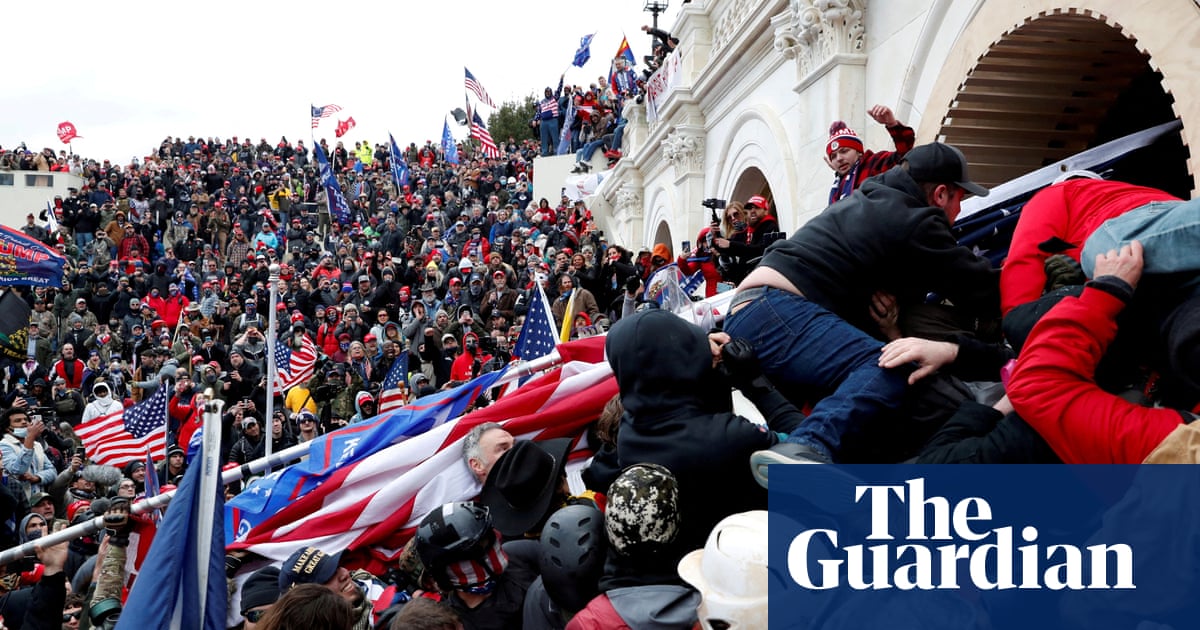The ex-president has said he would pardon those convicted of violence, obstructing Congress and seditious conspiracy
In the three years to the day since the insurrection at the US Capitol, great strides have been made in shoring up American democracy: hundreds of rioters have been prosecuted, legislation has been passed to bolster electoral safeguards and Donald Trump has been charged over his efforts to subvert the 2020 election.
But as the country marks the third anniversary of one of its darkest days in modern times, a pall hangs in the air. It comes from Trump himself and his promise, growing steadily louder as the 2024 presidential election approaches, that if he wins he will pardon those convicted of acts of violence, obstructing Congress and seditious conspiracy on 6 January 2021.
The scope of Trump’s pardon pledge is astonishing both for its quantity and quality. The former president has made clear that – should he be confirmed as the Republican presidential candidate and go on to triumph in the November election – he would contemplate pardoning every one of those prosecuted for their participation in the insurrection.



Would this not be considered as “providing comfort to insurrectionists”, as described in the 14th amendment. Even just promising pardoning them.
So even if they argue he supposedly wasn’t involved in it, it would still disqualify him from office.
If we had a legitimate Supreme Court, he would not be able to run. If we had a legitimate justice system, he would’ve been locked up (or fled to his favorite dictator). If we had a decent populace, he would be a just another spoiled brat, irrelevant clown.